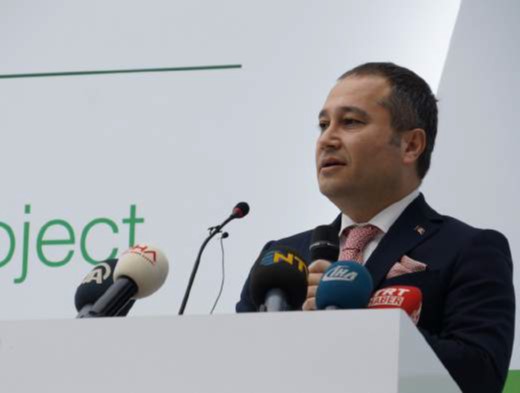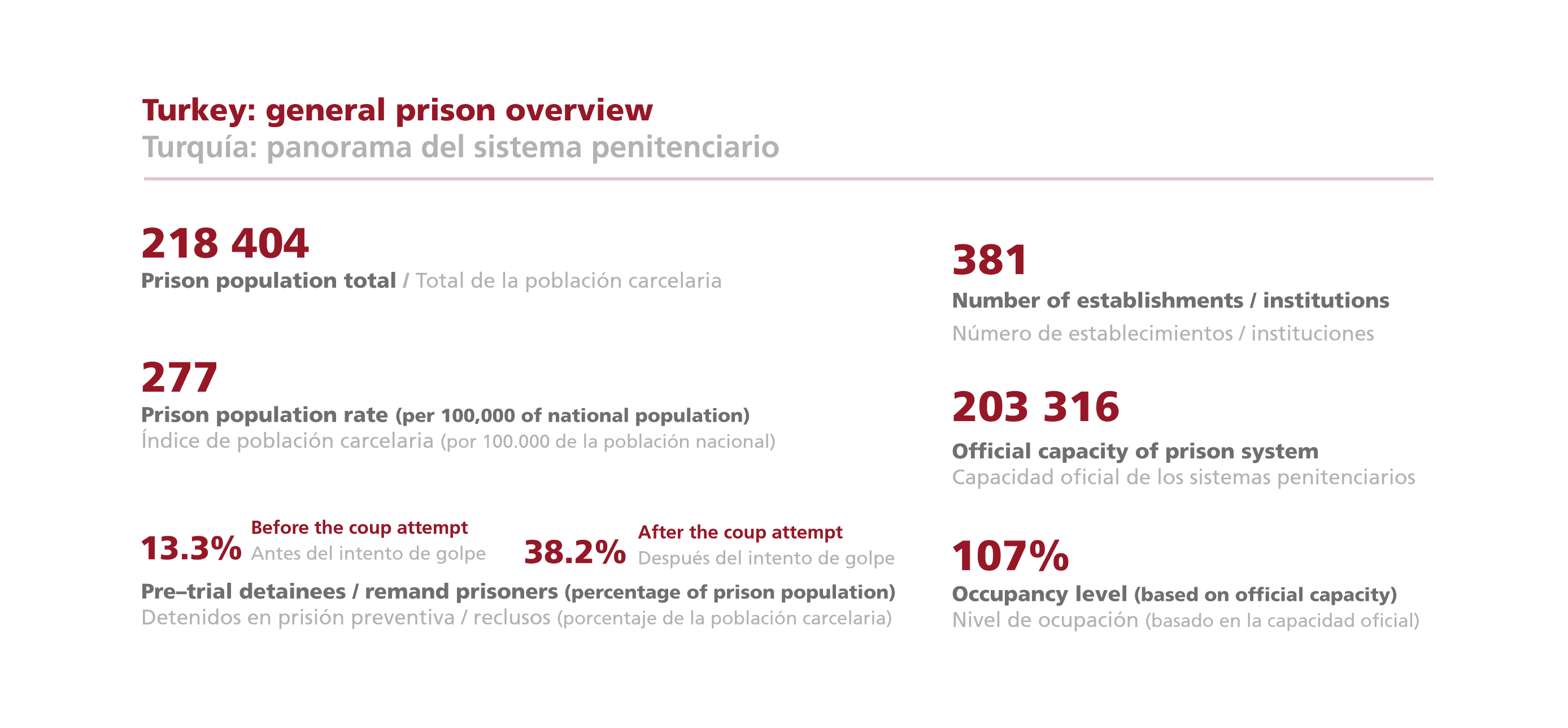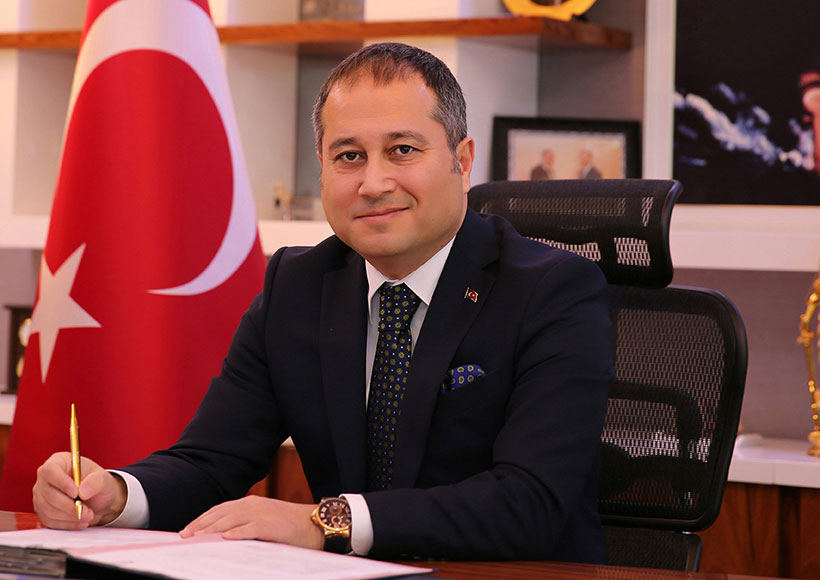// Interview: Enis Yavuz Yildirim
Director General of Prisons and Detention Houses of Turkey
JT: What are your views on the progress of the Turkish prison and probation system reform and how has it been influenced by the coup attempt of July 2016?
EY: With the introduction of our new execution of penalties and security measures in 2005, innovations that began in our penitentiary system have gained tremendous momentum.
We have made our prisons, our workshops, our training centres, our probation and all other units more modern and constantly renewing units because we will not be able to implement a healthy execution regime without a proper infrastructure.
Apart from the physical regeneration in the institutions, significant changes were made in the policy towards the staff, which is the most important element in increasing the quality of execution; we place great importance on staff training.
In our Training Centres, which are established in five different locations in Turkey, staff who are continuously trained are educated by experts in many fields, especially human rights. Today, in our prisons, there is 55.000 staff in various titles.
We regard that it is not as an option for prisoners to be benefited from training and rehabilitation activities, it is one of the basic functions of the institution. Thanks to the use of developing technology, significant steps have been recorded in education and training studies.
Within the scope of the EU projects, ten projects have been passed through and the integration of our contemporary execution system has been ensured. A strong education and rehabilitation process is being carried out in cooperation with universities and other ministries as well as many institutions and organisations.
Our probation system has made great progress in the past 12 years and it has become an important and indispensable part of our penal execution system. At the present time, probation services and protection boards in 139 places, where the justice commission is located, continue their activities.
The July 15th, 2016 events are the most treacherous terror organisation the history of mankind has ever seen. The number of people who are arrested and under judicial control has increased with the legal process initiated because many members of the treacherous terrorist organisation infiltrate to the institution.
There has been a partial impact on the number of our staff due to the fact that our Ministry has been staffed in the past among those who have been expelled from office and exported.
However, due to the measures that have been taken, recruitment of staff, and the dedication of existing staff, this situation has been prevented from becoming a serious crisis. Our execution system has successfully survived this numerical trauma.
JT: What are the main and most difficult challenges and constraints of the Turkish prison and probation system?
EY: Probation is difficult and risky in terms of implementation. Individuals who commit a crime serve their sentences without breaking from their family and social environment.
This means it is necessary that the controlling and following up of the people who are under probation system should be meticulously carried out within the framework of a certain plan and programme; at the same time, it emphasizes the necessity of carrying out the execution and rehabilitation process on the basis of strong legislation, with sufficient physical and technical possibilities, with qualified, specially trained, motivated staff with the knowledge and skill to work with offenders. Those in the prison system in our country are aware of all these requirements and are striving to proceed on their way.
It must also be noted that, as in all the world, also in our country, there is an increase in crime rates due to both social reasons and other factors. We have to struggle with the effects and results constituted by crime and some accompanying problems under worse conditions than many countries in terms of the population density in our country, geographical features, increased terror events, an excess number of refugees admitted into our country.
However, the General Directorate of Prisons and Detention Houses attaches special importance to the execution of criminal and justice system in a relevant and qualified manner irrespective of the circumstances and aims at executing sentences, ensuring the probationers to complete their sentences in conformity with human right and dignity, their rehabilitation, training and adaptation to the society after their release, prevention of recidivism and protection of society, and continues to conduct its relevant studies with its all units by showing the necessary attention and devotion.

JT: Which accomplishments would you like to underscore regarding the penitentiary reform that is underway in Turkey?
EY: After 2003-2004, the state channeled the highly important resources to an infrastructure where human rights and dignity will be protected in a moderate manner. While the physical structure is changing, adequate practices for modern execution have started to be developed over this physical structure.
Thus, it paved the way for the workshops institution to become the best work, training, and production system in the world within the penal execution system. Training and psycho-social service activities in penal institutions have been strengthened and the transition to individual rehabilitation process has been initiated.
New training centres have been opened to speed up the adaptation of the personnel in the transition process from security to rehabilitation and they have been strengthened in terms of engaging in activities for scientific and practical-oriented activities. Probation institutions were established from scratch and shaped in this direction.
As of today’s situation, it strives to keep up with the Western probation systems which have a history of over 100 years. Undoubtedly, this process is a crucial process in the Turkish penal execution history. Not even the events of the 15th of July 2016 could stop our works related to reforms.
“Our system has successfully survived the impact of the numerical
trauma after the coup attempt of 15th July 2016.”
JT: The Turkish probation system has been maturing and is now over one decade old. How do you see the role of probation in the framework the current reform?
EY: In this process, execution of various sanctions/measures/liabilities is carried out under thirteen different decision types such as judicial control measures alternative to detention, sanctions alternative to short-period imprisonment (participating in a training institution, prohibition from going to specific places or conducting specific activities, employment in publicly beneficial work etc.), the fulfillment of some obligations as part of the suspension of imprisonment sentence, treatment and probation, effective remorse, conditional early release, employment in a publicly beneficial work as an alternative to judicial fine.
As well as the execution practices in the probation system, rehabilitation studies including individual interview, group studies, intervention programmes, training and information seminars, structuring of free time etc. are also conducted in line with the identification of the risks and needs of probationers by means of using scientific methods. Necessary studies to develop and strengthen the probation system and to achieve more successful studies will continue non-stop. The future of execution is shaped by probation services.

JT: How do you picture the future of the penitentiary sector in Turkey, (please refer to both positive aspects and negative, i.e., challenges)?
EY: In our institutions which is a requirement and reality of social life, the practices that we apply to the convicts is no different or less advanced from the advanced legal systems of Europe. Some convicts in Europe want to be transferred to Turkey due to living conditions.
We know that we are not worse in terms of social life, living conditions. In various aspects, we know that we are in a better position. We are in close cooperation with the European institutions and the systems therein and we integrate a lot of new practices into our execution system.
Thus, the allegation that there are human rights violations in our institutions is unacceptable. There is no violation of right grounded on evidence. Convicts and detainees staying in our penal institutions are people who are endeavored to be delivered to their families in a healthy state and a socially adequate manner.
In this sense, I would like to once again maintain that in Turkey there are developments compatible with the practices required by the international era in the probation field and electronic monitoring field which is a sub-practice of probation. While developing these practices, our main axis and basic principle are human rights and dignity.
//
Enis Yavuz Yildirim is the Director General of Prisons and Detention Houses of Turkey and is also responsible for the Turkish Probation System. The Turkish penitentiary system has been under a reform process which was impacted by the coup attempt in July 2016, after which it has experienced a numerical increase in a short time.


